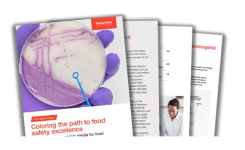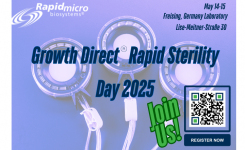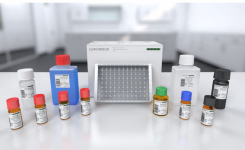As Honeyman Group continues to develop its range of branded training courses via the long established 'Principles in Practice'® series, we are pleased to announce that in April 2019 the extremely popular Pharmaceutical Water Systems training course is to be held at the state of the art Bristol-Myers Squibb facility in Dublin, Ireland.
The course will run over two days and is an abridged version of the three day 'Principles in Practice'®.
During the course there will be the opportunity for delegates to tour some of the site's pure water installations and to speak to Bristol-Myers Squibb personnel about owning and managing these systems within the pharmaceutical regulatory environment. This shared experience will be invaluable to other pure water system owners and users, and for those planning to build new systems in the future.
This 2 day course will explain:
- The current pharmacopeial specifications and requirements for pharmaceutical water
- The uses and applications for water in the pharmaceutical and biotech manufacturing facilities
- The methods of purification for Purified Water and Water for Injections
- The building blocks of water systems, and how to configure them to maximise reliability and performance
- Microbiological challenges including Biofilm and how to control them
- The design principles and standard industry practices in storage and distribution systems
- Approaches to quality, management and control of systems
- Workshops designed for delegates to put the principles into practice
For details and to book click here:
Also new for June 2019 in Ireland, Honeyman is launching a new Aseptic Processing Course to take place in Dublin. A must for those involved in working with aseptic processes in sterile product manufacturing operations:
Water Training Background
Pharmaceutical Water: What's all the fuss about?
There's a lot of complacency about water. Even in the domestic situation, few people in the developed Western World think much about it until it isn't there. Then you can't drink it, wash in it, shower, take a bath, water the garden, clean the car, clean windows etc. A couple of days without water and suddenly it's the most important thing in life. The same is true in the pharmaceutical manufacturing environment. Water normally flows like manna from heaven to manufacture products, make up solutions, wash equipment, clean down areas etc. But no pharmaceutical facility would stay in production very long without it - water is truly a 'critical utility'. Being without water has consequences in any situation, but there are two crucial differences between water used for domestic purposes and that for pharmaceutical manufacturing - Quality and Cost.
Every pharmaceutical factory has to provide water of 'controlled consistent quality' for product manufacture and processing, and in most cases that involves a water purification system to generate the appropriate grade, and a storage and distribution system effectively a hygienic plumbing system to get this purified water to the users. Most commonly, 'Purified Water' (PW) and 'Water for Injections' (WFI) are the bulk grades you would find in a pharmaceutical manufacturing environment, and these have strictly prescribed quality requirements in all the Pharmacoepias, along with one or two lesser used qualities.
It costs a lot to install a pharmaceutical grade water system, it also costs a lot to run it and to maintain it, to control and monitor it, week in and week out, and it even costs money to throw used water away whatever the grade. It costs even more if the water quality is bad, and production is stopped, or worse, if products have to be discarded. So quality and cost are inextricably linked when it comes to pharmaceutical water.
Another problem with pharmaceutical water systems is they must be monitored and controlled. A micro sample can be taken at 11 o clock, tested in the lab and everything found to be fine five days later when the results come through, but in actual fact the system could have been contaminated at 1 minute past 11 and nobody would know until the next sample was taken. What's more - the pipework passing through a facility can transmit water contamination everywhere it can spread throughout the facility instantly. So you can't easily test quality in to a working water system, which mean a total (holistic) approach to quality is needed; i.e. the system must be designed well, operated and maintained properly, and be adequately monitored and controlled. Regulators such as MHRA and FDA inspectors of course, know this, and are likely to ask probing questions at audit about water systems. They know that water is crucial and a potential risk to quality and manufacturing.
But do the people involved know and understand their water systems? Can we be confident that the water system is good and producing quality water in between the testing?
Honeyman Training courses highlight the key and essential points of designing, building, owning and operating pharmaceutical water systems. Basic design of water purification, storage and distribution system elements will be outlined, with illustrated examples. Delegates from different backgrounds and disciplines such as Engineering QC/Microbiology, Validation, Plant and Production Operators will learn and understand the roles each plays in the management, maintenance and control of water systems. Good communication and understanding between these areas is of course essential and key to efficient and successful water system performance.
Honeyman lecturers are seasoned professionals, with many year's experience in the field of pharmaceutical water. Their practical knowledge and experience enables them to host in-depth question and answer sessions, the history and background of today's standards can be explained, and plenty of guidance and advice on the do's and don'ts of water systems will be on offer.

















